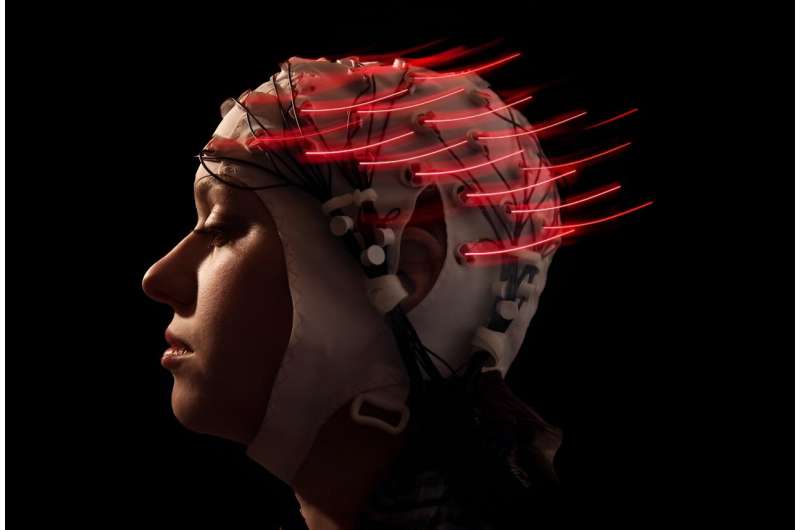This article has been reviewed according to Science X's editorial process and policies. Editors have highlighted the following attributes while ensuring the content's credibility:
fact-checked
peer-reviewed publication
trusted source
proofread
Exploring how the human brain takes stock of blame

The human mind does not like to make mistakes—and makes time to avoid repeating them. A new study from University of Iowa researchers shows how the human brain, in just one second, can distinguish between an outcome caused by human error and one in which the person is not directly to blame.
Moreover, the researchers found that in cases of human error, the brain takes additional time to catalog the error and inform the rest of the body about it to avoid repeating the mistake.
"The novel aspect about this study is the brain can very quickly distinguish whether an undesirable outcome is due to a (human) error, or due to something else," says Jan Wessel, professor in the Department of Psychological and Brain Sciences at Iowa and the study's corresponding author. "If the brain realizes an error was the cause, it will then start additional processes to avoid further errors, which it won't do if the outcome wasn't due to its own action."
The Iowa researchers learned about the brain's ability to separate human error from a non-self-inflicted error by asking 76 young adults to look at a cluster of arrows and choose the correct direction one specific arrow was pointing.
Nearly every time the subjects responded—almost always correctly, given the task's simplicity—a triangle would appear on the screen. But every now and then, another symbol (an anchor, frog, helicopter, etc.) would appear on screen, meant to mimic a "surprise" or unexpected outcome, and, importantly, appearing even when the subject responded correctly and expected the triangle symbol.
The researchers measured at three different intervals (350, 1,700, and 3,000 milliseconds) how the brain responded to situations with the standard outcome (the triangle) and the surprise outcome (a different symbol).
What they found is that the brain can distinguish between the two outcomes after about one second (1,000 milliseconds).
If human error is the reason for the outcome, the brain remains active for an additional two to three seconds, the researchers found. That means the brain realizes a mistake was made, and essentially wants to learn from it.
"When it is something that has to do with my own action and I can do something about it, then the brain takes a few seconds to reconfigure the entire cognitive apparatus, the visual system, the motor system," says Wessel, who has a joint appointment in the Department of Neurology. "It's as if the brain is taking a moment to fill in the rest of the body, the senses, the motor control, to tell the other working parts, 'Let's not do this again.'"
The researchers also measured brain waves through scalp electroencephalograms (EEGs) and observed ongoing neural activity that was unique to instances when human error occurred.
"Indeed, we found that while both errors and unexpected outcomes of correct actions led to comparable neural activity early on, only errors showed reliable, sustained brain activity more than a second after the response," Wessel says.
Previous research had shown the brain can recognize instances when human error has occurred, but there was debate about whether the brain's reaction to an outcome was the same regardless of whether the cause was human error or not.
"Some have argued that we don't actually have a genuine error detection system in the brain," Wessel notes.
But Wessel's research demonstrates that the brain does make an error/no error distinction and communicates information related to either outcome with the rest of the body.
"All in all, this shows that we do have genuine, error-specific systems in the human brain that detect our action errors that trigger adaptive responses, such as the strategic slowing of ongoing actions," Wessel says.
The study, "Early action error processing is due to domain-general surprise while later processing is error-specific," was published in The Journal of Neuroscience.
More information: Yoojeong Choo et al, Early Action Error Processing Is Due to Domain-General Surprise, Whereas Later Processing Is Error Specific, The Journal of Neuroscience (2023). DOI: 10.1523/JNEUROSCI.1334-23.2023



















